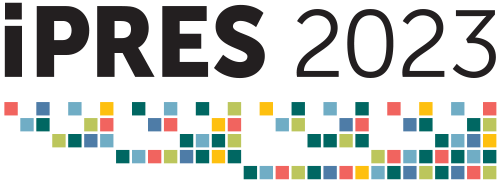Takes All Kinds: Grassroots Digital Preservation in a Crisis and Beyond
Abstract:
Digital preservation is like any other kind of preservation: it rarely happens by itself, is crucially dependent on choices made by people, and diverse perspectives and priorities increase the amount of material that will survive. Unfortunately, widespread misperceptions about digital content — including the idea that surely it’s all backed up safely in “the cloud” and requires no further human intervention — make it easy for individuals to forego taking proactive steps to preserve this material. This presentation highlights the digital preservation work done through Saving Ukrainian Cultural Heritage Online (SUCHO), an initiative begun shortly after Russia invaded Ukraine in February 2022. In the first few months of the war, SUCHO web archived over 50 TB of data from over 5,000 Ukrainian cultural heritage websites, bringing together people with technical expertise, those with relevant linguistic skills, and volunteers of all ages with no specialized skills beyond a desire to help. 18 months into SUCHO, what lessons can the digital preservation community take from SUCHO’s rapid-response, volunteer-driven approach? What are its limits? Whether digital data is at risk due to international crises, Big Tech policy changes, or poor documentation, cultivating a sense of responsibility and empowerment in a broader public has the potential for growing the community of people engaged with digital preservation, and the diversity of material that can be secured for future generations.
Biography:
Quinn Dombrowski is the Academic Technology Specialist in the Division of Literatures, Cultures, and Languages, and in the Library, at Stanford University. Prior to coming to Stanford in 2018, Quinn’s many digital humanities adventures included supporting the high-performance computing cluster at UC Berkeley, running a tool directory with support from the Mellon Foundation, writing books on Drupal for Humanists and University of Chicago library graffiti, and working on the program staff of Project Bamboo, a failed digital humanities cyberinfrastructure initiative.
Quinn has a BA/MA in Slavic Linguistics from the University of Chicago, and an MLIS from the University of Illinois at Urbana-Champaign. Since coming to Stanford, Quinn has supported numerous non-English digital humanities projects, started a Textile Makerspace, developed a tabletop roleplaying game to teach DH project management, explored trends in multilingual fanfic, and started the Data-Sitters Club, a feminist digital humanities pedagogy and research group focused on Ann M. Martin’s 90’s girls series “The Baby-Sitters Club”. A co-founder of Saving Ukrainian Cultural Heritage Online (SUCHO), Quinn has been working to preserve and augment Ukrainian digital cultural heritage since Russia’s invasion in February 2022. Quinn also serves as co-President of the Association for Computers and the Humanities, the US-based professional association for digital humanities.
